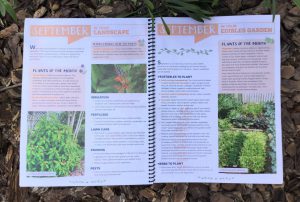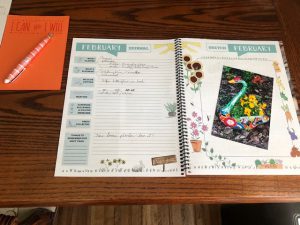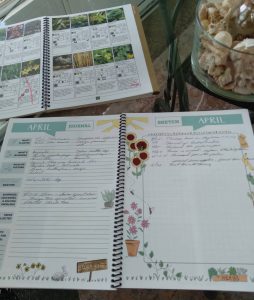As we move towards the fall and cool season gardening, consider the importance of garden planning. Landscape planning and design is well known, but do you plan your edible gardens? From vegetables to herbs to fruit trees, planning for space and future crop rotation is helpful.
When planning for your vegetable garden, first, select a site that gets full sun for most of the day. This means six or more hours. It should be easy to access and close to a water source. This may be a place in your yard, but also might be a spot on a patio, where containers could be placed.
After you have selected a site, you can create a plan. This might mean designing a layout for raised beds, or a combination of in-ground and containers—it’s up to you! Plan out spacing for the types of vegetables you want to grow. Growing pumpkins? Plan for vines that can grow up to 25 feet!
Create a seasonal growing plan that will indicate what crop is planted where. This will be helpful as you plan for crop rotation. What is crop rotation? Crop rotation is when plants in the same family are not planted in the same place season after season. The reason that crop rotation is important is to reduce garden pests. Planning and recording this in a journal or notebook is helpful and important.
Finally, it is important to plan how you will water your garden. If you are going to hand water, make it easy by locating the garden near a water source. If you plan to install irrigation, consider microirrigation. It is simple to install, there are many options available, and when installed properly can reduce water use and disease in the garden.
If you are looking for something to hel p you in your garden planning process, consider our Your Polk Yard, 12-Month Garden Guide and Journal. Compiled by Master Gardener Volunteers, the 85-page guide provides a one-stop resource for all things related to gardening in central Florida. Purchase the journal from UF/IFAS Extension Polk County, The Nectary Nursery, and the Polk Museum of Art. All proceeds benefit gardening and landscaping programming in Polk County. For more information, visit our blog: http://blogs.ifas.ufl.edu/polkco/2020/09/02/garden-guide-and-journal-available-for-sale/.
p you in your garden planning process, consider our Your Polk Yard, 12-Month Garden Guide and Journal. Compiled by Master Gardener Volunteers, the 85-page guide provides a one-stop resource for all things related to gardening in central Florida. Purchase the journal from UF/IFAS Extension Polk County, The Nectary Nursery, and the Polk Museum of Art. All proceeds benefit gardening and landscaping programming in Polk County. For more information, visit our blog: http://blogs.ifas.ufl.edu/polkco/2020/09/02/garden-guide-and-journal-available-for-sale/.
Remember, our growing conditions in central Florida are different than other locations and UF/IFAS Extension Polk County and the Polk County Master Gardener Volunteers can help guide you and answer questions you have about landscape maintenance.
For more information, contact UF/IFAS Extension Polk County at (863) 519-1041 or visit us online at http://sfyl.ifas.ufl.edu/polk. The Plant Clinic is open Monday-Friday, 9:00 am-5:00 pm to answer your gardening and landscaping questions. Give us a call or email us at polkmg@ifas.ufl.edu.
The Florida Master Gardener Volunteer Program is a volunteer-driven program that benefits UF/IFAS Extension and the citizens of Florida. The program extends the vision of the University of Florida/Institute of Food and Agricultural Sciences, all the while protecting and sustaining natural resources and environmental systems, enhancing the development of human resources, and improving the quality of human life through the development of knowledge in agricultural, human and natural resources and making that knowledge accessible.
An Equal Opportunity Institution.
 0
0
